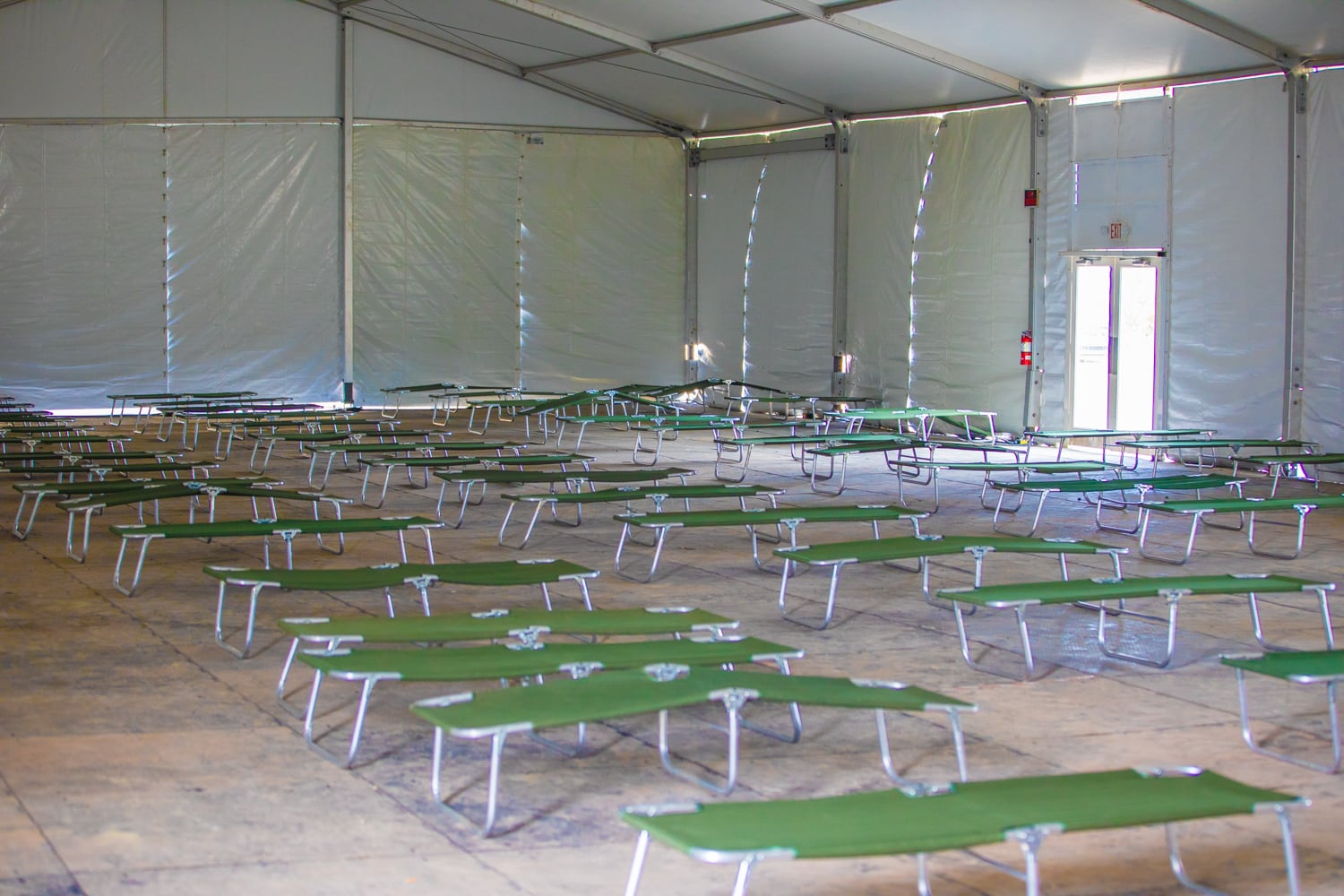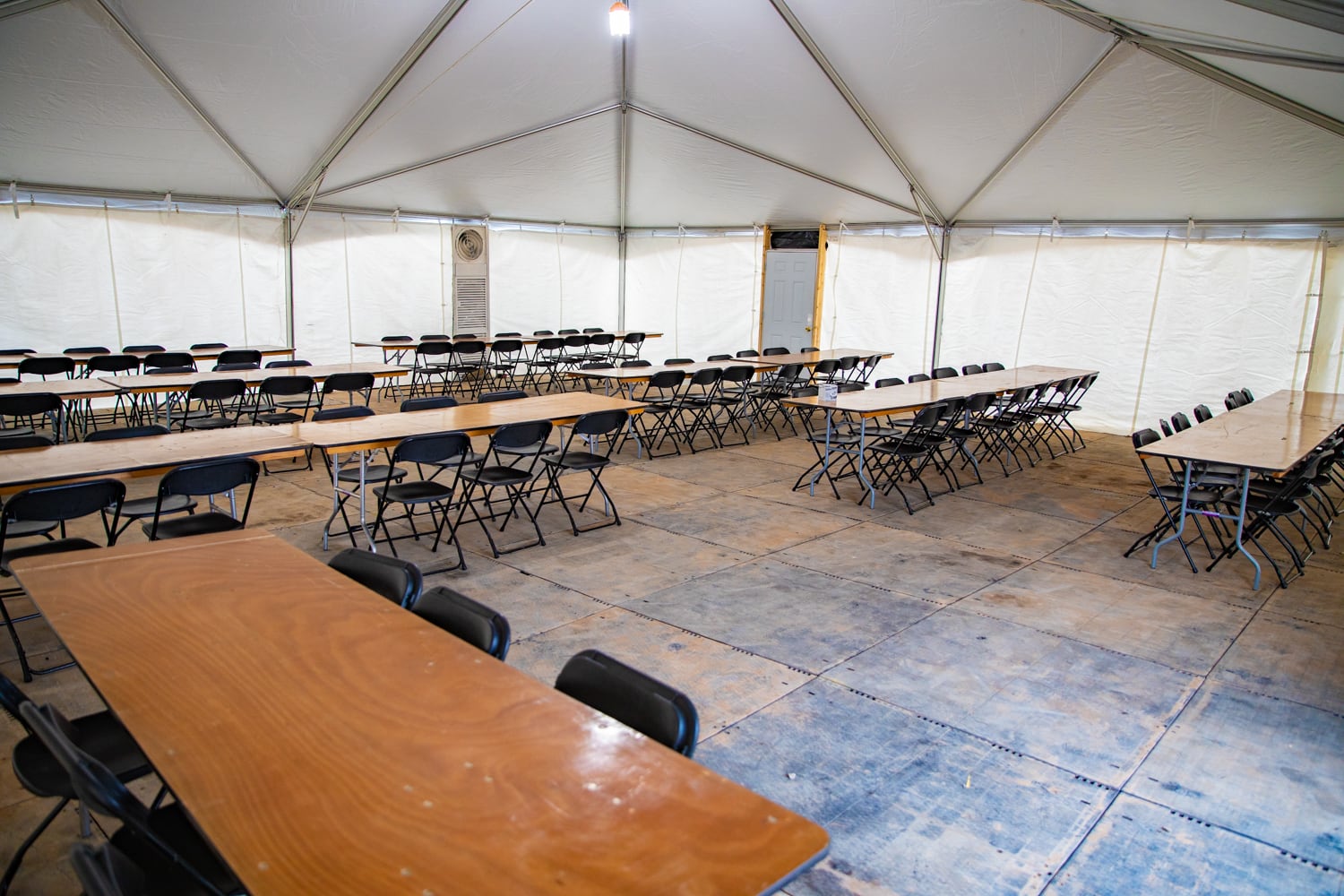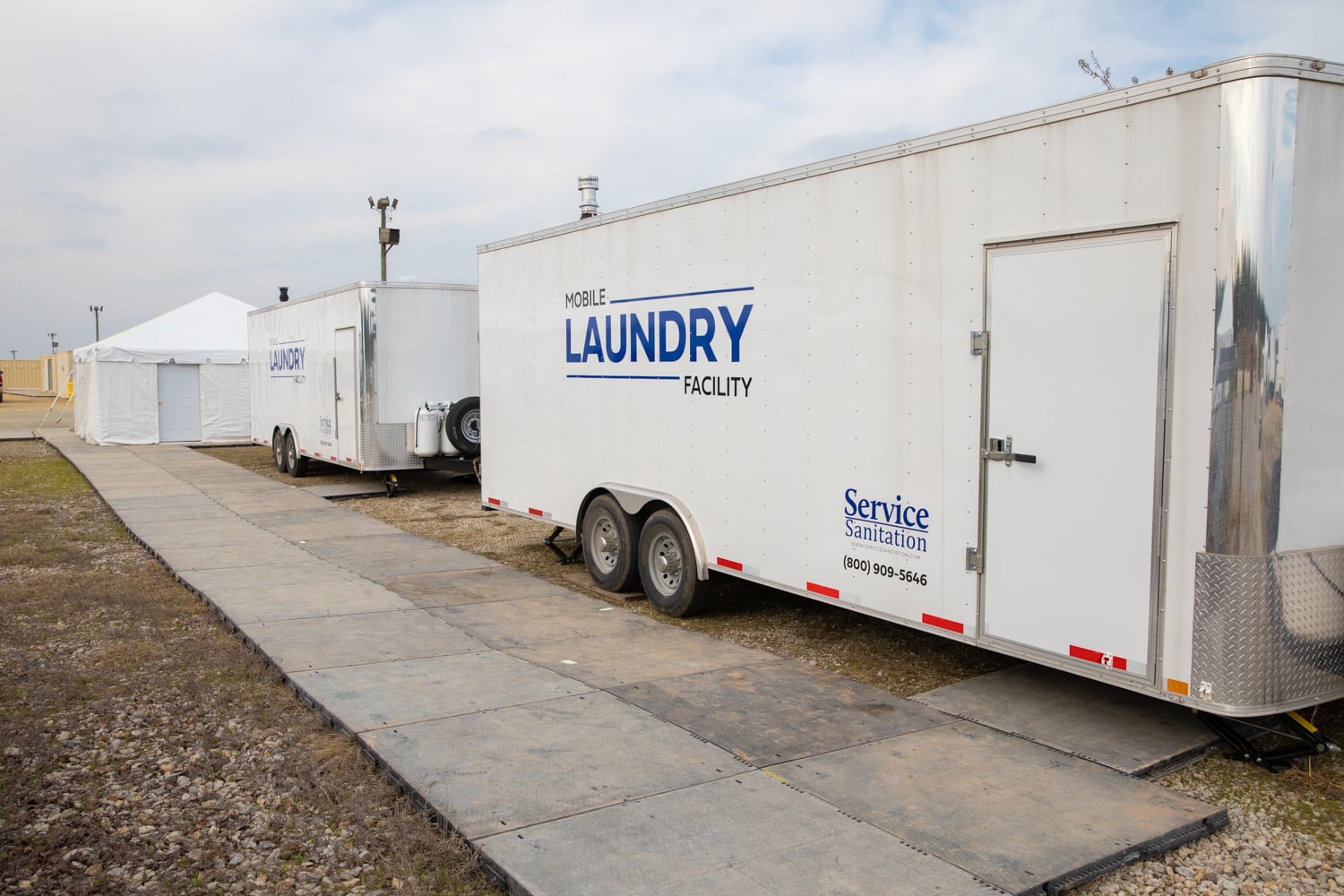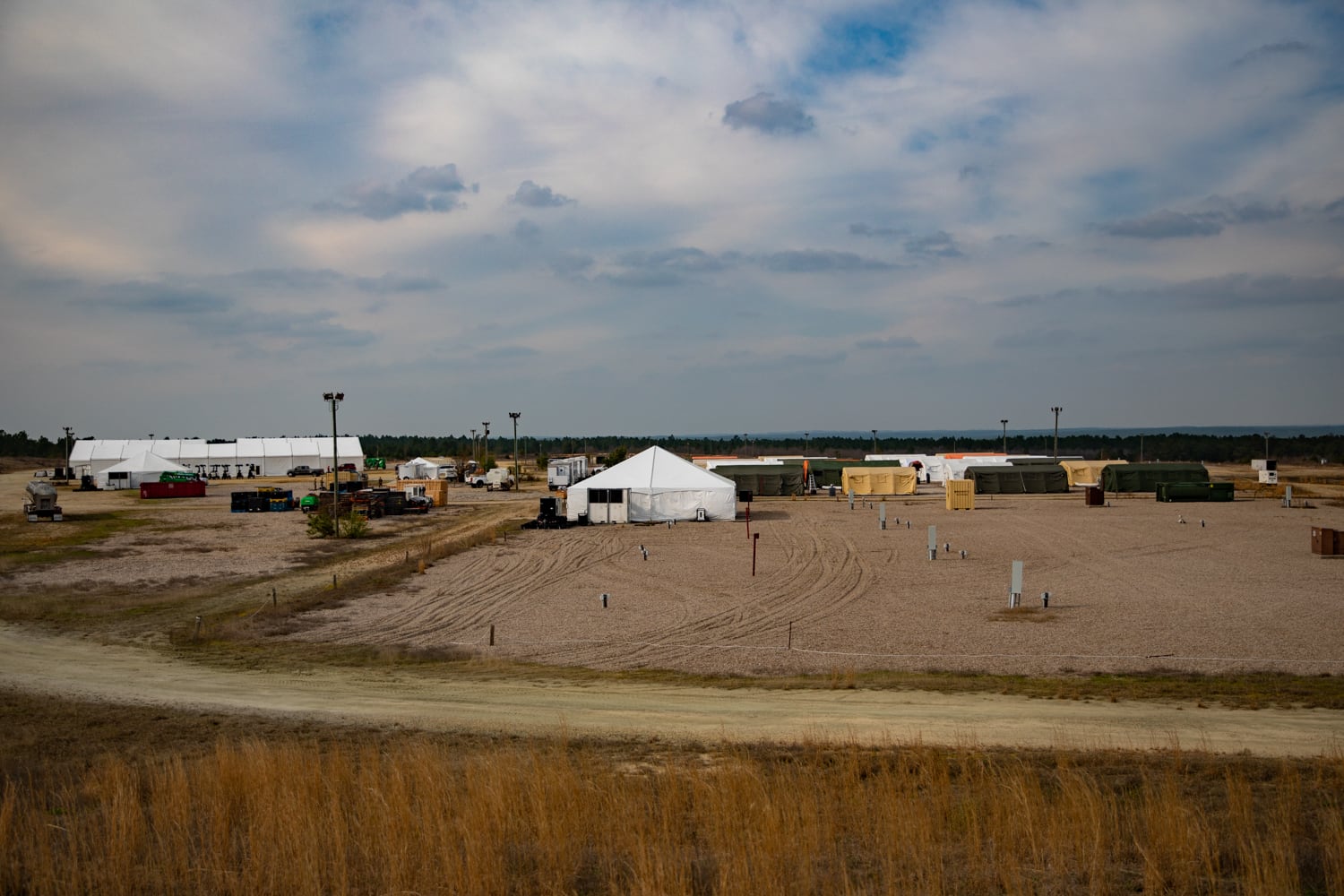The Army has set up remote facilities on Fort Bragg, North Carolina, for paratroopers returning from overseas and entering quarantine during the ongoing coronavirus pandemic, division officials said.
Paratroopers from the 82nd Airborne Division have been returning from deployments to Kuwait and Afghanistan and entering quarantine since the weekend. So far, they’ve been put up in barracks on post, with the exception of the first night, when some paratroopers returned and had to shelter in a PAX shed near the airfield typically used before parachute jumps.
The more remote facilities include “Gyms In a Box," internet services, mobile laundry units, catered food services through a contractor, mobile restrooms and showers. Catered food includes two hot meals and a cold one, which would be a sandwich meal for lunch.
“USO is really chipping in and helping out with hygiene kits,” said division spokesman Lt. Col. Mike Burns. “There’s a theater screen out here. We’re trying to do everything we can to make it comfortable.”
The Army is taking the quarantine seriously. Whether they’re quarantining on- or off-post, returning paratroopers signed memos acknowledging that violating the 14-day quarantine could result in punishments.

The temporary quarters are on a training site resembling forward operating bases soldiers encounter downrange, called FOB Patriot. The location has yet to be filled, as not all paratroopers have returned, but it has the capacity to house 600 people.
“It’s not something we wanted to do; it’s something we had to do to prevent the spread of the virus,” Burns said.
“We are quarantining our soldiers by chalk,” he added. “Across the chalk, it may be people from four different battalions, but all those guys start that 14 days together.”
Like government entities across America, Fort Bragg leadership had only a few days forewarning before they had to prepare for the quarantine policy. Officials on post have been working non-stop, according to Burns.

“We started churning as soon as we got the word that we’re going to have to quarantine them,” Burns said.
The quarantine applies to all soldiers coming back from deployment, but mostly those caught in the situation come from the 82nd’s 3rd Brigade Combat Team, which is returning from a deployment to Afghanistan.
Paratroopers will be able to continue regular activities after 14 days without any flu-like symptoms.
“If they start to show symptoms, they’ll be evaluated medically and they’ll be isolated in a separate place,” Burns added. So far, Fort Bragg has only reported one coronavirus case. That involved an Army civilian employee.
The quarantine situation applies to all returning soldiers who normally live in the barracks on base, or those who do not have a residence because they terminated a lease prior to departing and are unmarried. Married troops can quarantine with their families in their homes.

“If they don’t have a place to stay and a support system, they obviously can’t quarantine by themselves,” Burns said.
While the set-up was ad-hoc, the division is planning to use quarantine facilities through the summer at this time.
The 82nd has soldiers from 1st Brigade Combat Team who deployed to Kuwait as part of a contingency response force during a spike in tensions with Iran in early January. Those paratroopers will continue trickling back for a few more months.
Even as quarantine policies are put in place, Burns noted that the division is still training. Some paratroopers conducted a parachute jump on Wednesday and members of 2nd Brigade Combat Team are currently in the field.

The quarantine policy reflects larger Army guidance that troops returning from any country designated by the Center for Disease Control as Level II or higher, like Germany and Italy, will be subject to quarantine.
“It’s going to be a challenge for them, but I’ve seen first hand how resilient our Paratroopers are,” division commander Maj. Gen. James Mingus said in a statement over the weekend. “As soldiers, we understand better than most that we have a responsibility to the community to follow the guidelines provided by the CDC.”
Burns said division leadership is aware that returning paratroopers had their post-deployment leave plans ended by the quarantine policy. He added that there are plans to get paratroopers leave as the situation adjusts over time.
Kyle Rempfer was an editor and reporter who has covered combat operations, criminal cases, foreign military assistance and training accidents. Before entering journalism, Kyle served in U.S. Air Force Special Tactics and deployed in 2014 to Paktika Province, Afghanistan, and Baghdad, Iraq.




